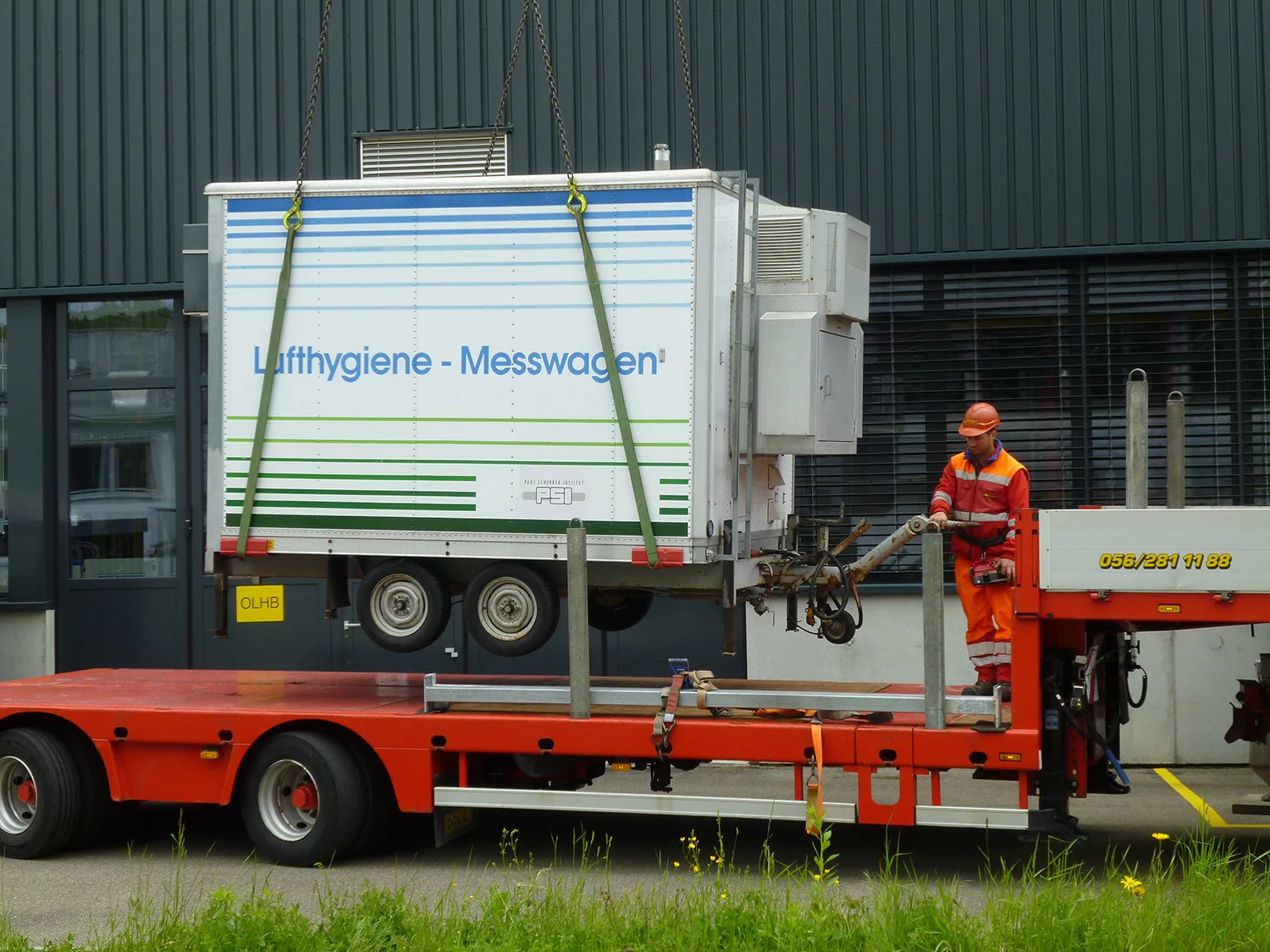The EU project, RI-URBANS, aims to improve air quality monitoring across Europe
Nanoparticles and particulate matter in the air are a major public health concern. Across Europe - including in Switzerland, with its clean streets and spotless toilets – these components regularly exceed WHO limits for healthy levels. But what exactly are these particles, where do they come from and how are they specifically linked to health? These are questions that a European project, of which PSI is a partner, will address. With more, detailed, scientific knowledge of the link between individual components and health, more targeted strategies to improve air quality can be made. Focusing their studies on Zürich, a key PSI contribution will be real-time analysis to identify particulate sources and components. This will give an understanding of the effect of individual events, and with it the ability to react to these events.
The European Commission funded project, RI-URBANS, has been officially launched with the aim to provide advanced service tools from atmospheric research infrastructures to better assess the air quality in Europe. Coordinated by the Spanish Institute of Environmental Assessment and Water Research (IDAEA-CSIC) and the University of Helsinki (UHEL), and led by Xavier Querol (IDAEA-CSIC) and Tuukka Petäjä (UHEL), RI-URBANS brings together eleven cities and twenty-eight partners across Europe in its objective of implementing advanced air quality monitoring observations in cities and industrial hotspots.
“This is a golden opportunity to apply advanced air quality research to assess on the health effects of air pollution and on cost effective policies to reduce it, not only for the conventional air pollutants but also for non-regulated ones”, declared the researcher and RI-URBANS coordinator Xavier Querol.
To pursue its strategy, RI-URBANS (which stands for Research Infrastructures Services Reinforcing Air Quality Monitoring Capacities in European Urban & Industrial AreaS) will focus on ambient nanoparticles and atmospheric particulate matter, their sizes, constituents, source contributions, and gaseous precursors, evaluating novel air quality parameters, source contributions, and their associated health effects to demonstrate the European added value of implementing such service tools.
“The project brings together local air quality monitoring networks and European Research infrastructures on atmospheric composition (ACTRIS and IAGOS). This allows two-way interaction to develop and pilot novel service tools and harmonize data streams in real city environments with a pan-European coverage”, underlined professor and RI-URBANS coordinator Tuukka Petäjä.
RI-URBANS will also improve modelling and emission inventories for policy assessment and will implement five pilots in nine cities (Athens, Barcelona, Birmingham, Bucharest, Helsinki, Milano, Paris, Rotterdam-Amsterdam, Zürich) to demonstrate these solutions for advanced air quality monitoring systems and evaluation of human exposure.
For more information, visit the project website in CORDIS or follow @RI_URBANS on Twitter and LinkedIn social media accounts.
Based on a media release from CSIC on behalf of RI-URBANS with additions from Paul Scherrer Institute / Miriam Arrell
Contact
Dr. André S. H. Prévôt
Group Leader, Gasphase and Aerosol Chemistry Group
Paul Scherrer Institut
Telephone: +41 56 310 42 02, e-mail: andre.prevot@psi.ch
Coordinators:
- Xavier Querol (xavier.querol@idaea.csic.es)
- Tuukka Petäjä (tuukka.petaja@helsinki.fi)
Communication:
- Alicia Arroyo (alicia.arroyo@idaea.csic.es)
- Giulia Saponaro (Giulia.Saponaro@fmi.fi)
This project has received funding from the European Union's Horizon 2020 research and innovation programme under grant agreement No 101036245

